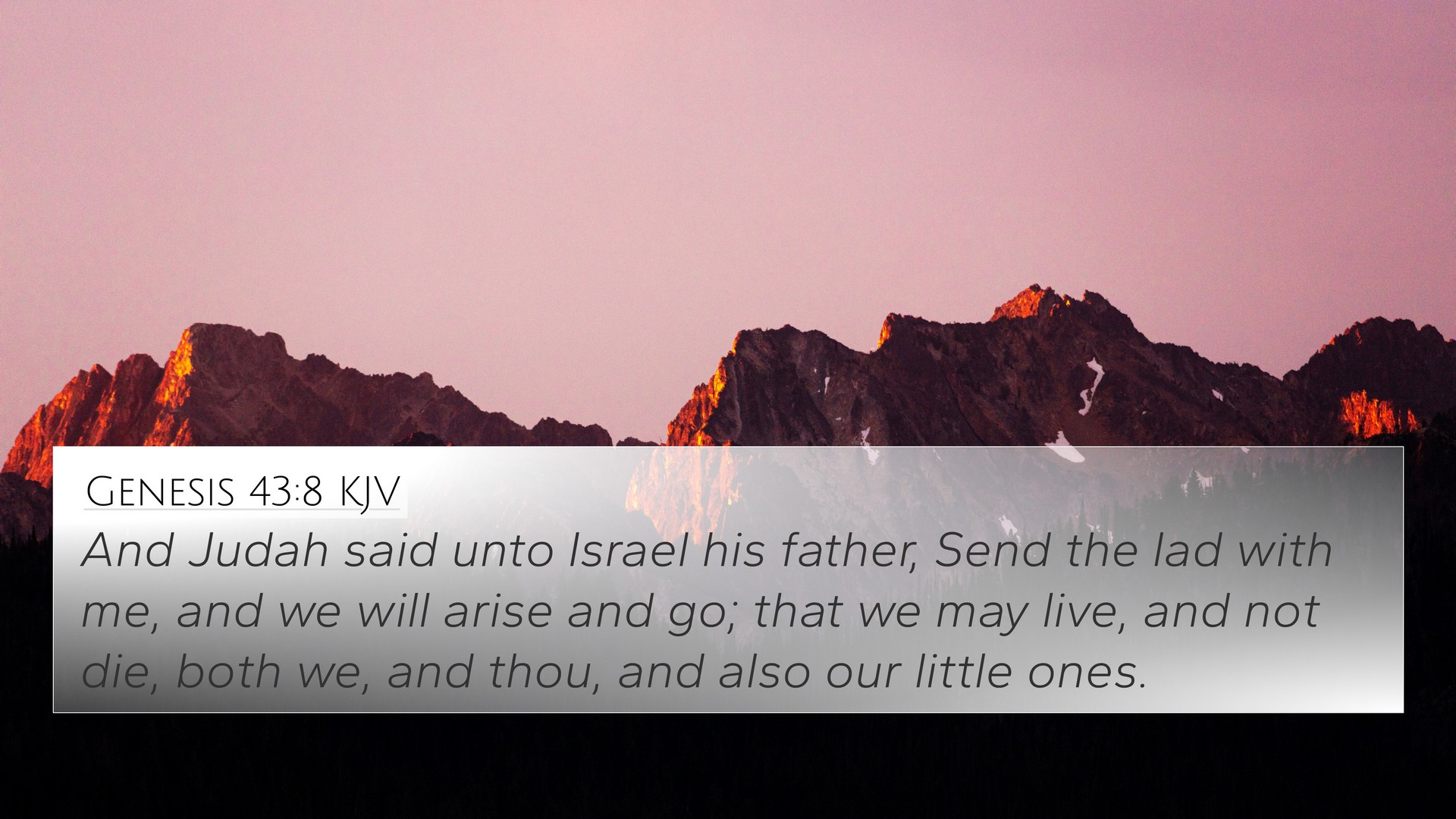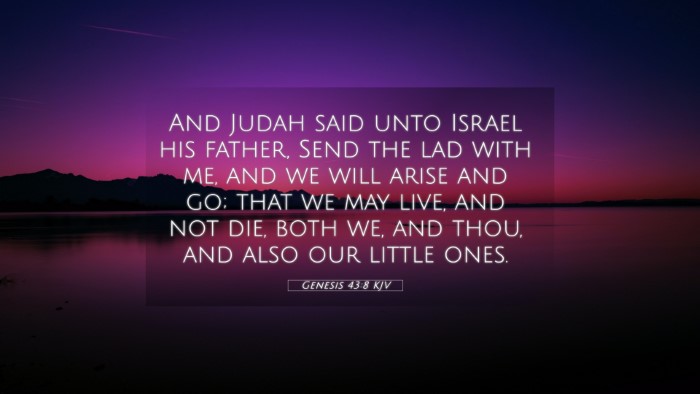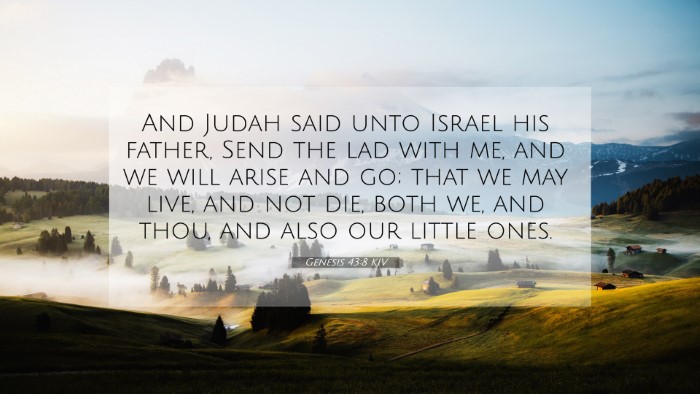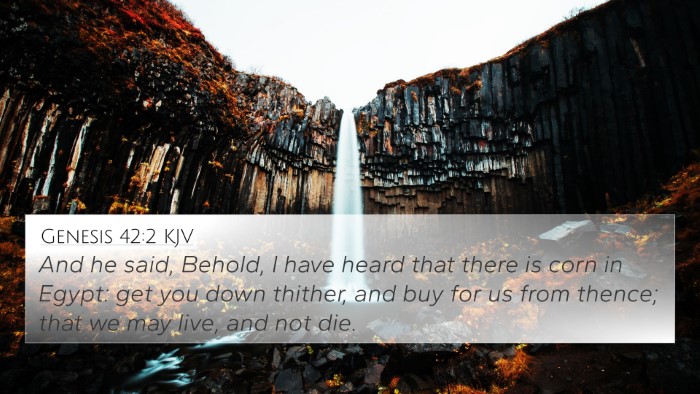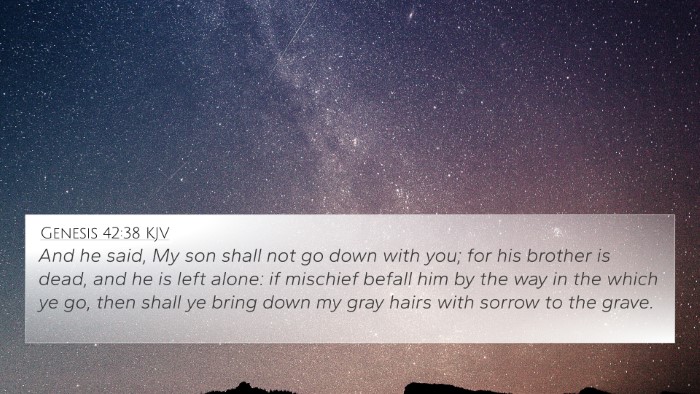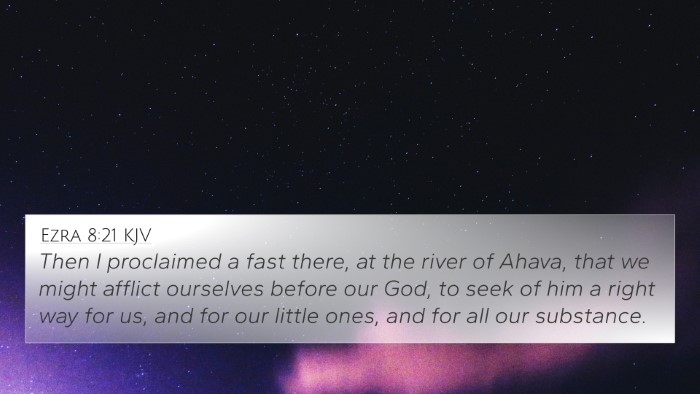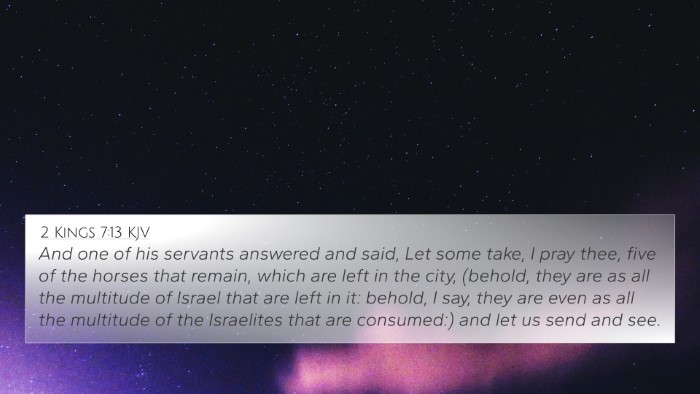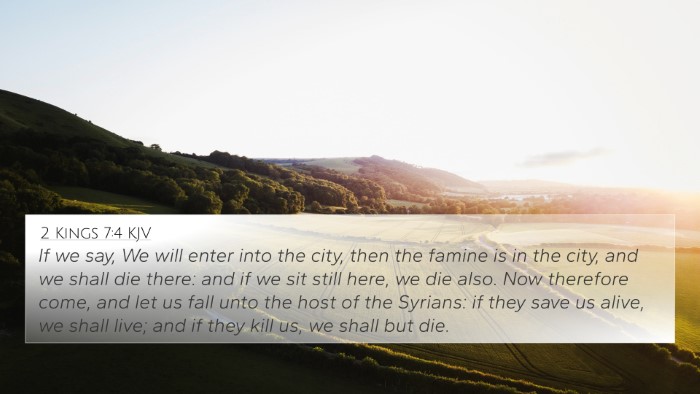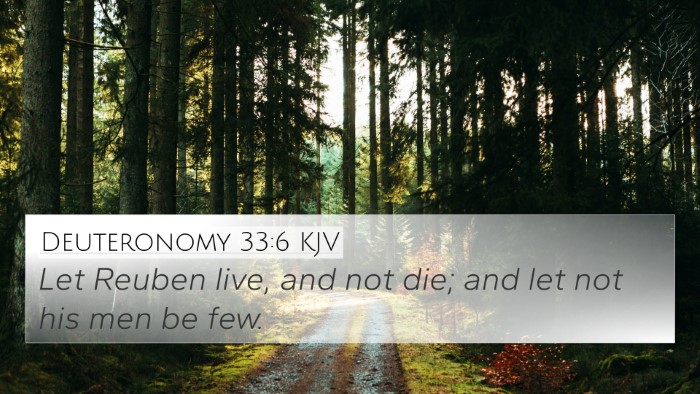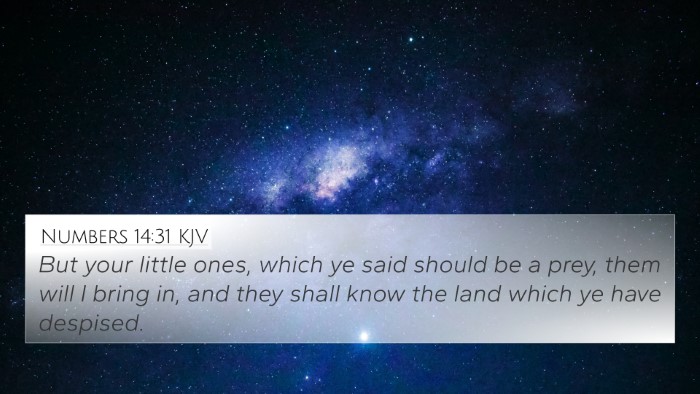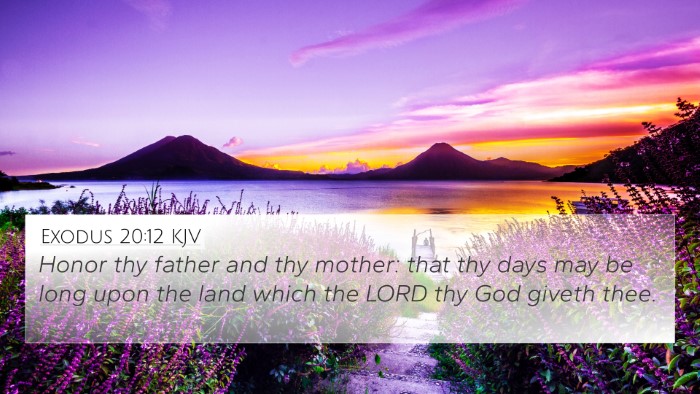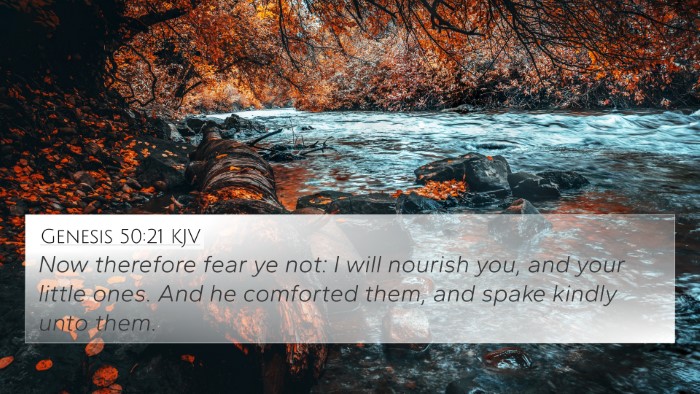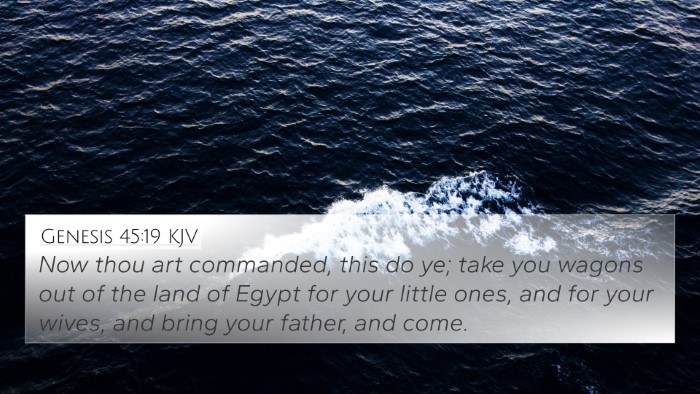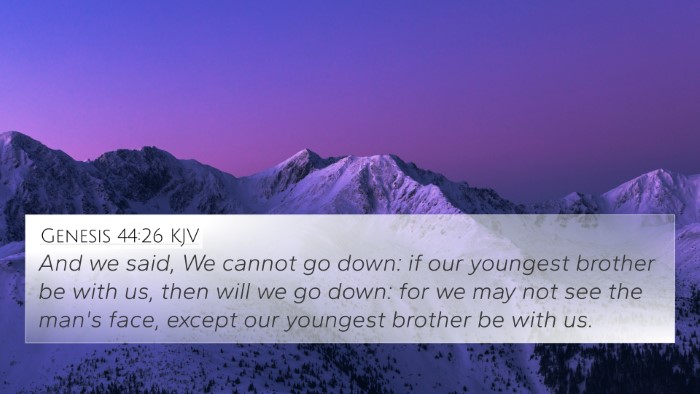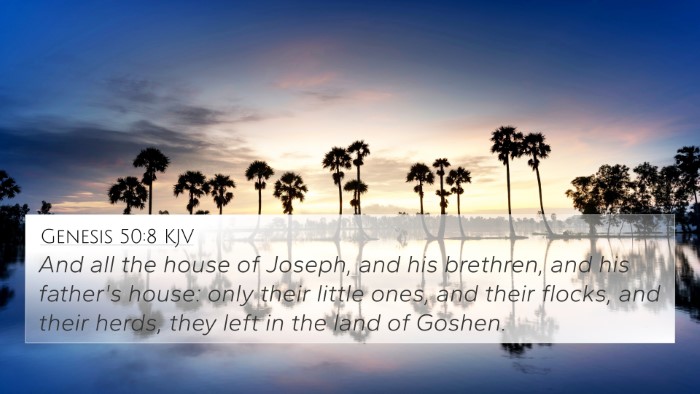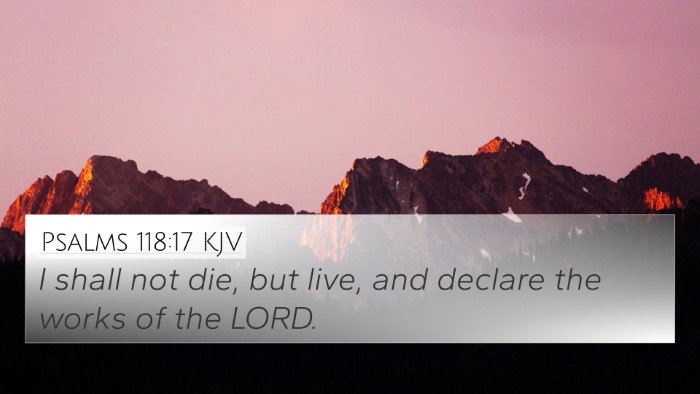Understanding Genesis 43:8
Verse excerpt: "And Judah said unto Israel his father, Send the lad with me, and we will arise and go; that we may live, and not die, both we, and thou, and also our little ones."
Verse Meaning and Analysis
Genesis 43:8 captures a poignant moment of concern and persuasion as Judah speaks to his father, Israel (Jacob), emphasizing the importance of sending Benjamin, the youngest brother, to Egypt. The context surrounding this verse is rich with emotional and practical implications within the narrative of Joseph and his brothers. For a deeper understanding, we will explore insights from notable public domain commentaries.
Matthew Henry's Commentary
Matthew Henry emphasizes Judah's role as a leader among his brothers. He notes that Judah's appeal to his father reflects both desperation and responsibility. By stating, "we may live, and not die," Judah stresses the perilous situation they face due to famine. The urgency in Judah’s words represents not just physical survival, but also the familial bonds and the obligation to protect one another, as they consider the welfare of their children.
Albert Barnes' Notes
Albert Barnes provides additional layers by discussing the implications of sending Benjamin. He notes that Judah’s argument is compelling; it combines a sense of duty with a shared risk. Barnes highlights that this moment is crucial for the restoration of the family dynamics, as their past actions against Joseph weigh heavily on their conscience. Judah’s willingness to take Benjamin reflects a transformation in character, showcasing leadership and a protective instinct that binds the family together, despite their past grievances.
Adam Clarke's Commentary
Adam Clarke delves into the personal dynamics of the family. He notes that Judah’s intercession signifies a shift from individualism to collective responsibility. By referencing the need to save not just themselves but their little ones, Judah encapsulates the essence of generational continuity and care. Clarke underscores that this moment symbolizes the struggle between fear and hope, as their actions might lead to either salvation or further despair.
Key Themes and Cross-References
This verse connects to a broader narrative within Scripture and reflects themes of family, sacrifice, and redemption. Below are several thematic connections and relevant Bible verse cross-references:
- Genesis 42:36: Jacob's grieving over the loss of Joseph and his fear for Benjamin.
- Genesis 37:30-35: The brothers' deceit concerning Joseph's fate and the resulting familial distrust.
- Hebrews 11:21: The faith of Jacob as he approaches the end of his life, including his concerns for his children.
- Romans 3:23: The universal nature of sin and its implications on familial relations.
- 1 Timothy 5:8: The importance of providing for one's family as a sign of faithfulness.
- John 15:13: The principle of laying down one's life for friends, paralleling Judah's sacrifice.
- Romans 12:10: Encouragement to love one another with brotherly affection, resonating with Judah's plea.
- Colossians 3:13: Calls for forgiveness among family, reflecting on Judah's transformation.
- Matthew 18:21-22: The call to forgive, relevant to the brothers' past and their need for reconciliation.
- Genesis 44:32-34: Judah's further advocacy for Benjamin, demonstrating loyalty and love.
Thematic Connections and Lessons
The exchange in Genesis 43:8 illustrates the importance of family unity and the willingness to bear burdens for loved ones. This theme resonates throughout the Bible, where familial relationships often symbolize broader spiritual truths.
By engaging in a comparative Bible verse analysis, we can better appreciate the interconnectedness of these scriptures. The lessons of sacrifice and intercession seen in this passage provide a powerful reflection on the ways individuals can act for the benefit of their families and communities, echoing the overarching call to love and sacrifice found throughout Scripture.
Conclusion
Genesis 43:8 stands as a critical moment within the Joseph narrative, filled with emotion and weighty decisions that would alter the course of the family. Through Judah's voice, we learn about the importance of acting in faith for the sake of others, tying together themes of survival, love, and redemption that resonate across the whole of the Bible.
